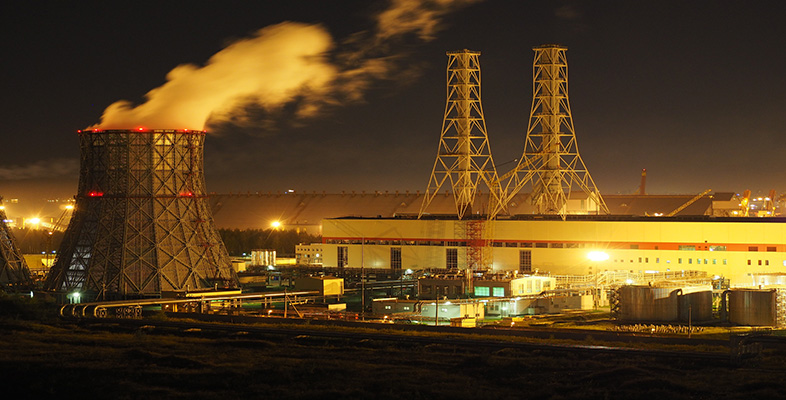3.1 Arguments for nuclear energy
Safety
The safety argument focuses mainly on the risks to human health. It essentially transforms a previous perceived weakness into a present strength. The evidence of enhanced leukaemias and genetic effects near nuclear sites is inconclusive; association does not indicate causation. In any case there has been a progressive reduction in emission levels of radioactivity, and the risks to the health of workers and the general population are well within regulatory limits, which are themselves extremely conservative. Nuclear energy’s safety record, with few accidents and stringent procedures, is contrasted with dangerous technologies such as coal (mining accidents), oil (drilling platform disasters) and gas. As Kidd argues, ‘Thousands of deaths in coal mining each year, explosions at gas terminals and devastating floods when hydro dams are breached receive a fraction of the publicity accorded to even minor nuclear incidents’ (Kidd, 2007a, p. 77).
Security
There are three aspects to this. First is security of supply. Unlike renewables, nuclear energy offers continuous baseload supply. Second, nuclear is substantially an indigenous source of supply with an established infrastructure (although dependent on imports of uranium, which can be stored), and not, like oil or gas, potentially exposed to possible disruption of supplies (whether deliberate, accidental or commercial). Third, to ensure security of nuclear materials, nuclear sites are well protected and comply with international regimes of safeguards to prevent proliferation.
Economics
The economic arguments have seemingly shifted more in favour of nuclear. Whereas in 2003 nuclear was considered ‘likely to remain more expensive than fossil-fuelled generation, especially in a liberalised market’ (Cabinet Office, 2002, p. 103), by the time of the 2007 white paper it was argued that nuclear power ‘would yield economic benefits to the UK in terms of reduced carbon emissions and security of supply benefits’ (DTI, 2007, p. 191). In other words, it could be competitive within a liberalised market with carbon trading where environment and security were taken into account in the price of carbon. Although it would be up to the private sector to provide the investment and meet the liabilities of decommissioning and waste disposal, the regulatory and planning requirements would be reduced. In any case, scale economies using new, more efficient reactor systems are bringing down the costs of construction, financing, operating and liabilities to the point where nuclear can ‘offer electricity at predictable low and stable costs for up to sixty years of operation’ (World Nuclear Association, undated, p. 21). Given that nuclear has low operating costs (fuel accounts for only about five per cent of total costs) economies in capital investment could make a big difference to its competitiveness. Uranium reserves are reasonably assured and only in the event of a major expansion of nuclear energy worldwide is there likely to be pressure on supplies.
Environment
Climate change has become a core argument in favour of nuclear energy. A replacement nuclear programme would provide a low-carbon electricity output capable of operating at high load factors and providing a continuous supply. Comparing emission levels over the whole life cycle of alternative sources, it has been estimated that nuclear emits between 7 and 22g/kWh, similar to wind energy in contrast to 380 for gas and 830 for coal-fired plant (DTI, 2007). It is nuclear energy’s potential contribution to lowering carbon output that is decisive in shifting support in favour of nuclear. ‘It may be premature to say that the intellectual battle in favour of nuclear power has been won, but it is increasingly looking that way’ (Kidd, 2007b, p. 20-3). Nuclear energy also avoids other forms of pollution associated with gas or oil. It may be portrayed as a clean and green form of electricity supply. Environmental impacts are regulated by applying international radiological principles (International Commission on Radiological Protection, ICRP) to discharge limits to air and land and through international agreements to limit marine discharges (Paris Convention) and the banning of dumping at sea (London Dumping Convention).
Radioactive waste
One of the main problems with nuclear energy is the long-lasting legacy of radioactive waste. Supporters of nuclear energy have become increasingly confident that deep geological disposal of the most dangerous wastes provides a solution that is technically and scientifically robust, and which can achieve public acceptability. Consequently, that most intractable of nuclear energy’s problems is solved, thus removing a barrier to further expansion.
Public acceptability
Nuclear energy has enjoyed increasingly favourable public opinion surveys. Nuclear energy provides investment and jobs and the basis for economic security in communities that host nuclear plants. Among the population as a whole, low-carbon electricity from nuclear energy is seen as far preferable to the high carbon emissions from coal, oil and gas. And nuclear is seen as necessary to plug the ‘energy gap’ and prevent the lights going out.
